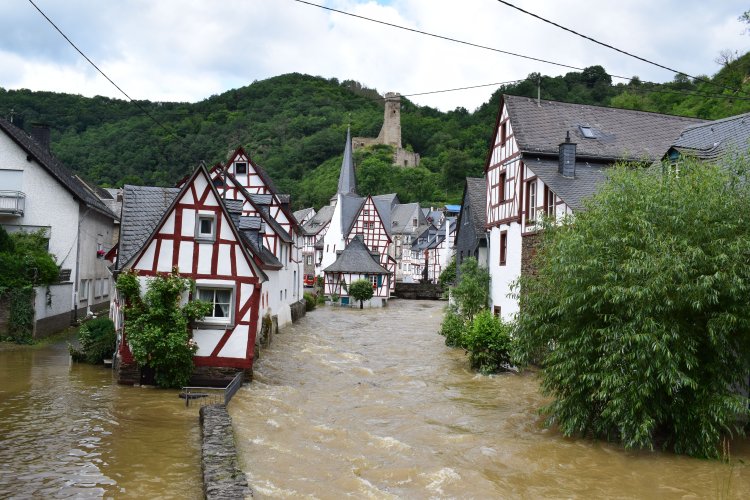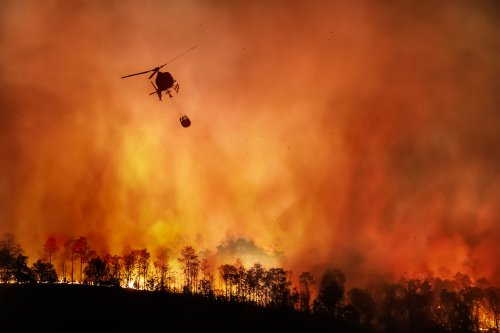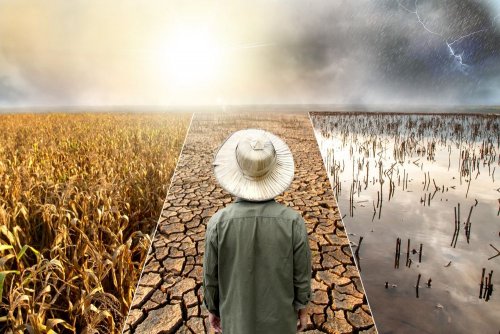The UN Meteorological Agency has warned that without much more ambitious action, the physical and socio-economic consequences of climate change will become increasingly devastating.
Ambition needed to meet 2030 emissions reduction commitments would need to be 7 times higher to meet the goal of limiting global warming to 1.5°C, reports Atalayar
A new interagency report from the World Meteorological Organization, United in Science, highlighted the wide gap between climate expectations and reality.
Thus, the concentration of greenhouse gases in the atmosphere continues to grow and reach new peaks, despite a temporary decrease during the COVID-19 pandemic.
The report highlighted that the last seven years were the warmest on record and that the probability of the average annual temperature being temporarily 1.5°C above the 1850-1900 average in at least one of the next five years is 48%.
Over the past 50 years, the number of natural disasters related to weather, climate and water has increased fivefold, resulting in daily losses of $202 million.
The most affected by extreme weather events in different parts of the world are the vulnerable segments of the urban population, where billions of people live and which account for up to 70% of anthropogenic emissions.
UN Secretary General Antonio Guterres said that floods, droughts, heat waves, severe storms and wildfires are getting worse, breaking records with increasingly alarming frequency. And extreme weather events have nothing natural about them and represent the price humanity pays for dependence on fossil fuels.
He also warned that the effects of climate change are entering uncharted territory of destruction and that, despite this, dependence on fossil fuels is increasing.
"Climate research is increasingly showing that many of the extreme weather events we experience have become more likely and more intense because of human-induced climate change," said World Meteorological Organization Secretary-General Petteri Taalas.
He noted that in 2022 this phenomenon with tragic consequences was observed more than once. Taalas also emphasized the importance of intensifying the use of early warning systems to build the resilience of vulnerable communities to current and future climate risks.
He also added that the organization is leading a campaign to ensure early warning in the next five years.
The report noted that in 2021, global fossil CO2 emissions returned to pre-pandemic levels in 2019, after falling by 5.4% in 2020 as a result of the massive cap. Preliminary data show that global CO2 emissions in 2022 (January to May) are 1.2% higher than the same period in 2019, due to increases in the US, India and most European countries.
"A quarter of greenhouse gas emissions due to land-use change are related to food trade between countries, with more than three-quarters due to land clearing for agriculture, particularly livestock grazing," the report says.
In addition, the ocean heat content for the 2018-2022 period was higher than for any other five-year period, as the rate of ocean warming increased particularly sharply over the past two decades. And the ocean stores about 90% of the heat in the Earth system.
Other research results:
- by the 2050s, more than 1.6 billion people in more than 970 cities worldwide will be regularly exposed to three-month average temperatures of at least 35°C;
- low-lying coastal cities and towns such as Bangkok (Thailand), Houston (USA) and Venice (Italy) are likely to experience more frequent and extensive coastal flooding as a result of sea level rise, storm surge and subsidence.
“Early warning systems are a cost-effective and effective means of adaptation that can save lives and reduce loss and damage. Fewer than half of the world's countries reported the existence of early warning systems for multiple hazards, as coverage is particularly poor in Africa, the least developed countries and small island developing states," the article noted.
Earlier, EcoPolitic wrote, that new research from the University of Stockholm, Sweden, has shown that the current rate of warming will put the Earth at risk intersection of 6 dangerous climatic tipping points.
As EcoPolitic previously reported, a study by the independent analytical center InfluenceMap showed that the 5 largest oil and gas companies exaggerate their environmental contributions in public announcements and continue to direct the majority of investments in oil and gas projects.





